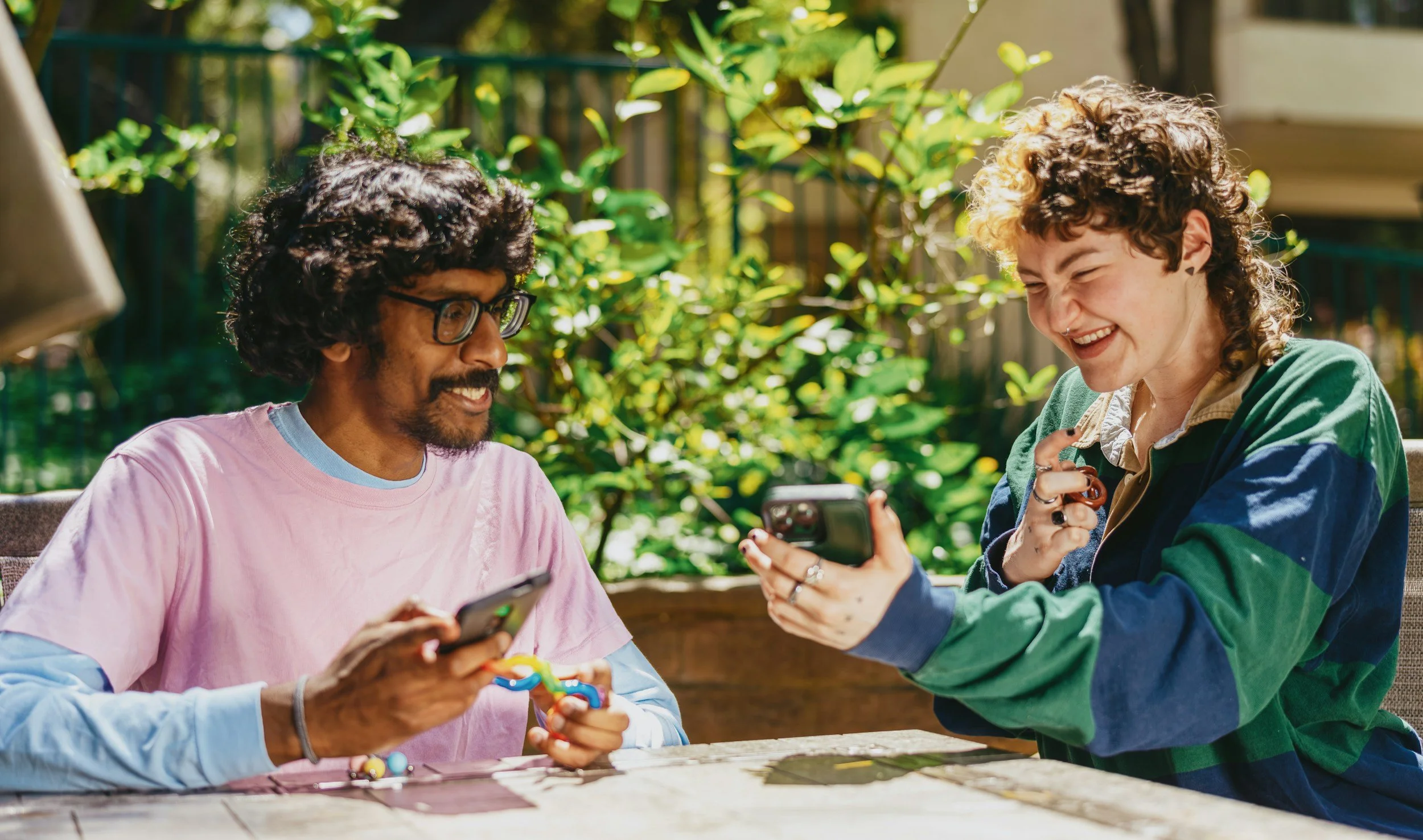
Neurodivergent Couples Therapy
Understanding Each Other in New Ways
Every couple faces challenges, but when one or both partners are neurodivergent, unique dynamics often emerge. Differences in communication, processing, and expression can sometimes lead to misunderstandings, frustration, or feelings of disconnection.
Neurodivergent couples therapy creates a supportive, affirming space where both partners can better understand each other, bridge communication gaps, and celebrate the strengths neurodiversity brings to the relationship.
What Does It Mean to Be Neurodivergent?
“Neurodivergent” refers to people whose brains process, learn, or experience the world differently. This can include individuals with:
ADHD
Autism Spectrum Disorder (ASD)
Dyslexia, dyscalculia, or other learning differences
Sensory processing differences
Other forms of neurodiversity
In relationships, these differences can be both strengths and challenges. Therapy helps couples harness the positives while learning strategies to navigate difficulties.
What Happens in Neurodivergent Couples Therapy?
Therapy provides both partners with understanding, validation, and practical strategies. Sessions often include:
Education About Neurodiversity – Normalizing differences and helping each partner better understand the other’s perspective.
Strengths-Based Focus – Highlighting the unique gifts and resources neurodiverse partners bring to the relationship.
Communication Skills Training – Developing strategies for clearer, more supportive dialogue.
Emotional Regulation Tools – Learning ways to manage overwhelm, stress, or shutdowns.
Conflict Resolution Strategies – Helping partners navigate disagreements without escalation.
Sensory and Intimacy Support – Exploring how sensory needs affect connection and intimacy.
Why Couples Seek Neurodivergent Couples Therapy
Couples may come to therapy for many reasons, including:
Communication breakdowns or frequent misunderstandings
Different needs around routine, structure, or flexibility
Conflicts about emotional expression or regulation
One partner feeling unseen, unheard, or overwhelmed
Intimacy or sensory differences affecting closeness
Parenting challenges in neurodiverse households
Stress from navigating stigma, judgment, or lack of understanding from others
These struggles don’t mean the relationship is failing. They mean the couple needs tools, compassion, and guidance tailored to their unique neurodiverse dynamic.
Approaches Often Used
Therapists may draw on a combination of approaches to meet the couple’s needs:
Neurodiversity-Affirming Therapy: Centering acceptance and appreciation of neurological differences.
Cognitive Behavioral Therapy (CBT): Building practical skills for communication, problem-solving, and flexibility.
Emotionally Focused Therapy (EFT): Strengthening attachment and emotional connection.
Gottman Method Couples Therapy: Offering evidence-based tools for communication and conflict resolution.
Psychoeducation & Coaching: Providing insight, strategies, and support tailored to neurodivergent challenges.
Building Connection Through Understanding
When partners learn to understand, validate, and adapt to each other’s differences, relationships can thrive. Neurodivergent couples therapy provides the tools and guidance you need to create more harmony, deeper intimacy, and lasting connection.
Schedule a consultation today to start building a relationship that honors both partners fully.
Inclusive and Affirming Care
Neurodivergent couples therapy is inclusive of all identities, including LGBTQIA+ partners, interracial and interfaith couples, blended families, and BIPOC clients. Each relationship is unique, and therapy is tailored to your cultural, personal, and neurological context.
Benefits of Neurodivergent Couples Therapy
Couples often experience meaningful shifts, including:
Greater understanding of each other’s needs and experiences
Reduced conflict and frustration
Improved emotional safety and trust
Better communication and teamwork
Stronger intimacy and connection
Increased appreciation for the strengths of neurodiversity
WE CAN HELP.
REACH OUT TODAY.
Phone: 310.271.2275
BEVERLY HILLS LOCATION
9350 Wilshire Blvd, Suite 212
Beverly Hills, CA 90212





